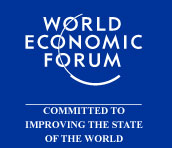
Reportaje
Business Coalitions: a joint response to AIDS
24 de enero de 2008
24 enero 200824 enero 2008

The World Economic Forums’ initiative for health the ‘Global Health Initiative’, supported by UNAIDS, has released the first report on Business Coalitions at the World Economic Forum’s annual meeting in Davos. The report is an in-depth study of the activities of Business Coalitions and will help define how they can better support the private sector in responding to AIDS.
Business Coalitions on AIDS have emerged as an effective platform for the private sector response to the epidemic. AIDS has already claimed the lives of 25 million in the global workforce and remains a serious threat to business.
Although some companies are already effectively addressing AIDS in the workplace, others despite being aware of the risks to their business, simply do not know how or where to start mitigating risks.Business Coalitions have emerged to fill this gap and provide the private sector with the tools and processes it needs to effectively address AIDS in the workplace.
Business Coalitions act as a voice for the private sector, often through representation on national AIDS committees and by interacting with other key stakeholders. They support the business response to AIDS through advocacy and the design, development and implementation of workplace programmes by providing the necessary materials, tools and training.
"UNAIDS has supported the development of a number of national business coalitions on HIV in regions heavily impacted by the epidemic,” said Peter Piot, Executive Director, UNAIDS. “Business coalitions are a valued and respected partner in the AIDS response. Thanks to their growing influence, more companies are engaging in activities to tackle AIDS. But such companies remain in the minority. I hope this report will help encourage others to get involved.”
To date, four regional Business Coalitions and 47 national Business Coalitions have been established with a further 10 national Business Coalitions scheduled for launch in 2008-2009. Collectively, these coalitions have already reached over one million organisations with AIDS workplace policies and programmes.
Coalitions have formed partnerships with key stakeholders at national, regional and international levels. In addition to the private sector, these include international donors, other regional and national Business Coalitions, governments and civil society groups. These relationships are critical in delivering a coordinated response to the epidemic.
The regional coalitions serve as a platform for national coalitions to come together, share experiences, exchange expertise and find solutions to some of the more complex challenges, common to the region. UNAIDS is currently working with over 30 regional and national business coalitions, helping to support the private sector response to AIDS.
Business Coalitions Tackling AIDS: A Worldwide Review , January 2008 presents the current Business Coalition landscape and suggests next steps for all stakeholders to build on the global momentum and success with engaging the private sector.
The report was developed by the GHI in partnership with the World Bank, UNAIDS and Deutsche Gesellschaft für Technische Zusammenarbeit (GTZ) and with the support of the Corporate Council of Africa (CCA) and the PharmAccess Foundation.

